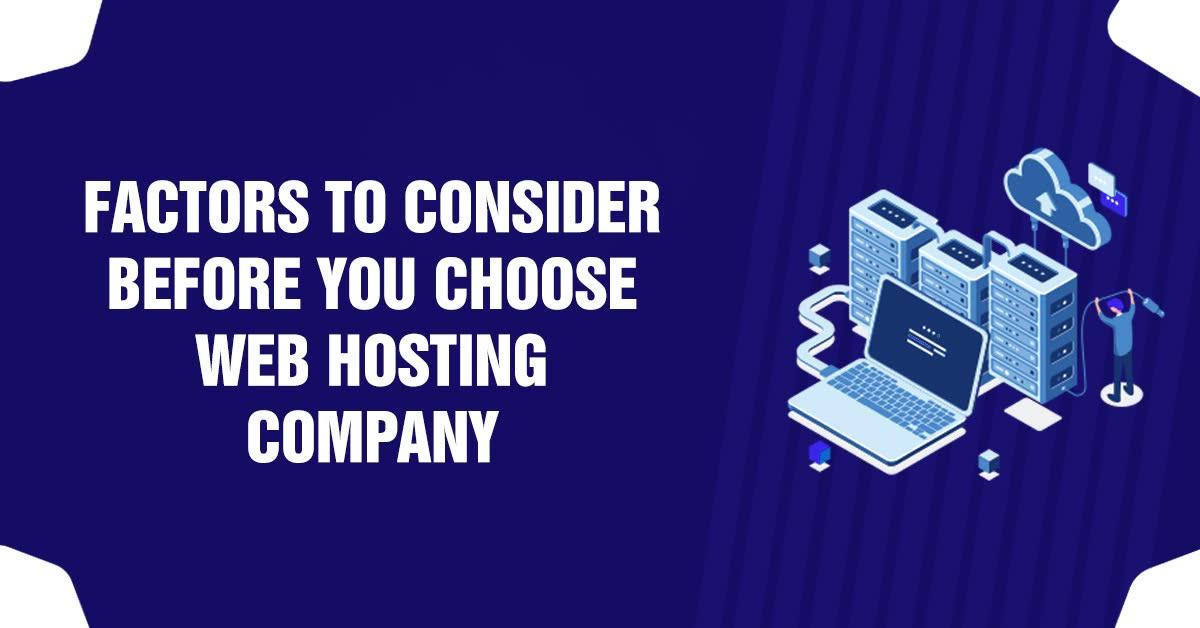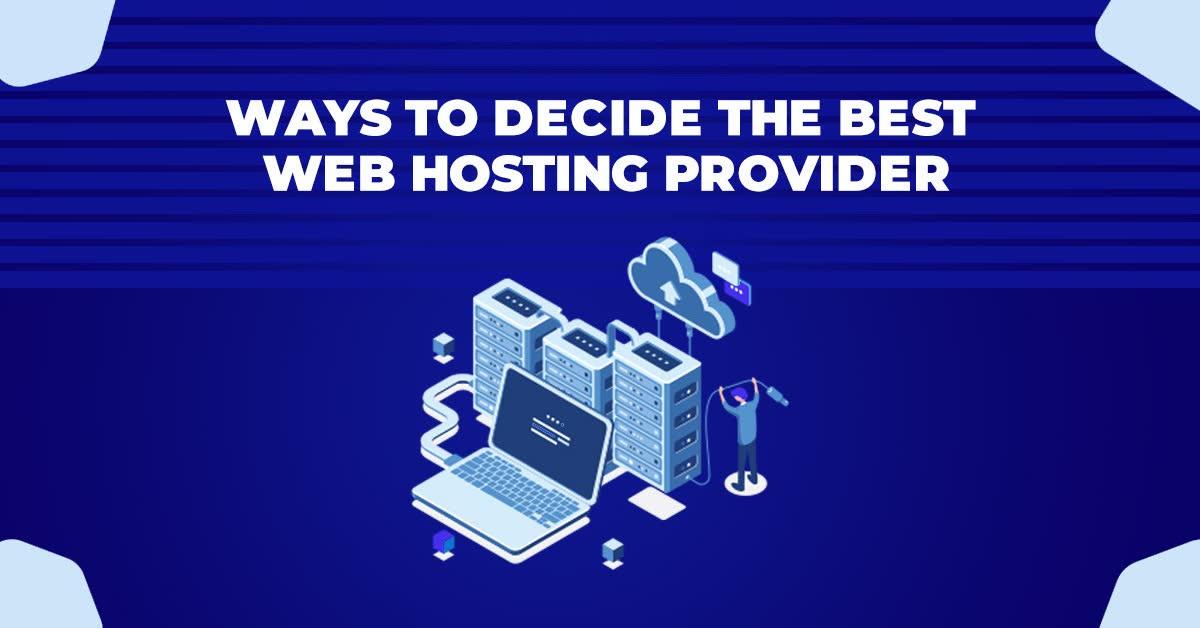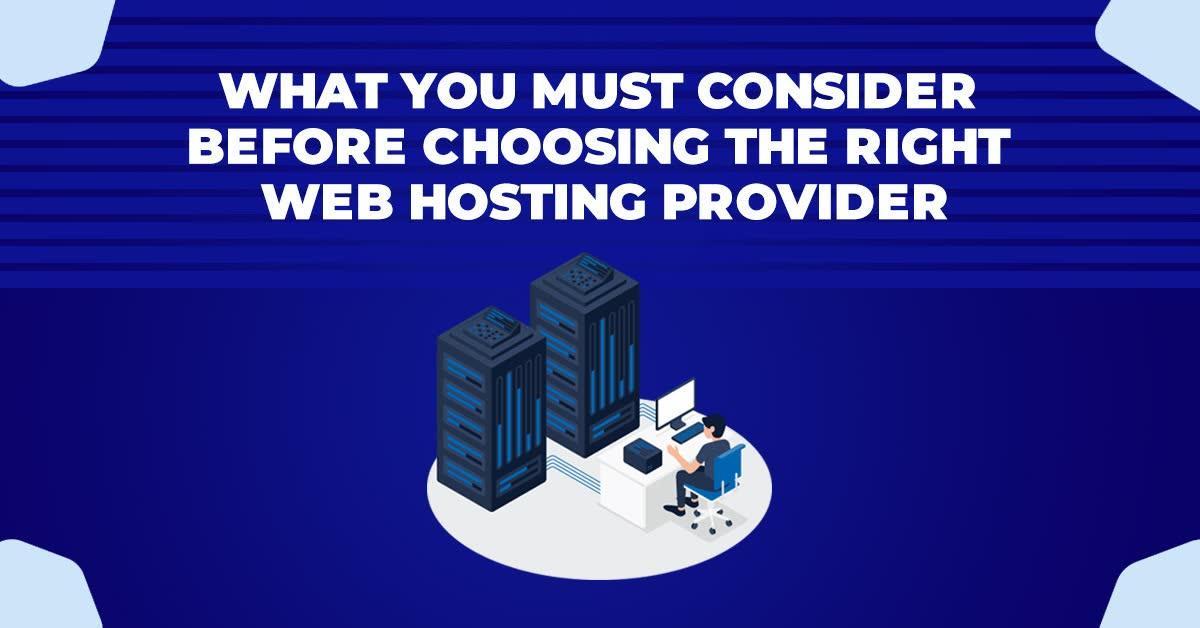A Guide For Choosing A Web hosting Provider
Web hosting is a service that allows businesses and individuals to host their websites on the internet. A web host provides server space for the website files and makes them accessible to visitors via the internet. However, there are a few things to choosing a perfect web hosting provider. Before we proceed further, it is important to know some key details about web hosting services, such as:
- Types of hosting: Different types of web hosting include shared hosting, VPS (Virtual Private Server) hosting, dedicated hosting, and cloud hosting. Each type of hosting has its own advantages and disadvantages, and the type of hosting you choose will depend on the size of your website and the amount of traffic it receives.
- Server location: The location of the web server can affect the speed and reliability of your website. Consider choosing a web host with servers located in close proximity to your target audience to ensure the best possible website performance.
- Bandwidth and storage: Most web hosting plans come with a limited amount of bandwidth and storage, which is the amount of data that can be transferred to and from the server. Consider choosing a hosting plan that provides enough bandwidth and storage to accommodate your website’s traffic and content.
- Control panel: The control panel is the interface that allows you to manage your web hosting account and website. Look for a web host that offers a user-friendly control panel, as this will make it easier for you to manage your website.
- Email hosting: Some web hosting plans also include email hosting, which allows you to create and manage email accounts using your website’s domain name.
- Security: Security is an important consideration when choosing a web host, as your website will be vulnerable to hacking and other security threats. Look for a web host that provides security features such as regular backups, SSL certificates, and malware scanning.
- Cost: The cost of web hosting services can vary greatly depending on the type of hosting and the features included. Consider the cost when choosing a web host, but also keep in mind that the cheapest option may not always be the best choice in terms of reliability and performance.
How To Choose The Best Web Hosting Provider
Choosing the right web hosting provider is a critical decision for any website owner, as it can have a major impact on the success and growth of your website. With so many options available, it can be overwhelming to choose the right web host. Here is a comprehensive guide to help you choose the best web hosting provider for your needs.
- Determine Your Website Needs: Before choosing a web host, it is important to understand your website’s requirements, including the amount of traffic you expect, the size of your website, and the type of content you will be hosting. This will help you to determine the type of web hosting that is best for your needs and the specifications you should look for in a hosting provider.
- Types of Web Hosting: There are many types of web hosting available, including shared hosting, virtual private server (VPS) hosting, dedicated hosting, and cloud hosting. Each type of hosting has its own advantages and disadvantages, and the type of hosting you choose will depend on the size and complexity of your website.
- Reliability and Uptime: The reliability and uptime of your website are crucial for the success of your online presence. Choose a web hosting provider that offers a high level of uptime, typically 99.9% or higher, and has a strong reputation for reliable service.
- Speed and Performance: The speed and performance of your website can have a major impact on user experience and search engine rankings. Choose a web host that provides fast and responsive servers, and consider the location of the servers relative to your target audience.
- Customer Support: Good customer support is essential when choosing a web host, as you may need assistance with technical issues or other questions. Look for a web hosting provider that offers 24/7 support via phone, email, and live chat, and has a strong reputation for providing helpful and responsive support.
- Security Features: The security of your website is critical, and you should choose a web host that provides robust security features, including regular backups, SSL certificates, and malware scanning.
- Ease of Use: The ease of use of your web hosting provider’s control panel can have a significant impact on your experience as a website owner. Look for a web host that provides a user-friendly control panel, with easy-to-use tools for managing your website and installing web-based applications.
- Scalability: As your website grows, you may need to upgrade your web hosting plan to accommodate increased traffic and storage requirements. Choose a web host that offers scalable plans, allowing you to easily upgrade your hosting as needed.
- Price: The cost of web hosting can vary greatly depending on the type of hosting and the features included. While price is an important consideration, it should not be the only factor in your decision. Choose a web host that provides a balance of features and affordability, and avoid choosing the cheapest option if it comes at the expense of reliability or security.
- Reputation and Reviews: Finally, research the reputation of the web hosting providers you are considering, and read customer reviews to get a sense of the experiences of others. Look for web hosts that have a strong reputation for quality service, reliability, and customer satisfaction.
- Environmentally Friendly: Many website owners are concerned about the environmental impact of their online presence. Consider choosing a web hosting provider that is environmentally friendly, uses renewable energy sources, and implements sustainable practices.
- Domain Management: The ability to manage your domain name and DNS records is an important consideration when choosing a web hosting provider. Look for a web host that provides an easy-to-use domain management system, allowing you to easily manage your domain name and keep your website online.
- Contract Length and Renewal Costs: When choosing a web hosting provider, it’s important to understand the terms of the contract and the cost of renewing your hosting plan. Some web hosts offer low introductory prices that increase significantly upon renewal, while others offer more stable pricing. Consider the long-term cost of your web hosting and choose a provider with a fair and transparent pricing policy.
Conclusion
In conclusion, choosing the right web hosting provider is a crucial step in the success of your website. Consider your website needs, the type of hosting that is best for you, and the reputation and customer reviews of the web hosts you are considering. By following these guidelines, you can find a web hosting provider that provides the reliability, security, and support you need to grow and succeed online.







































